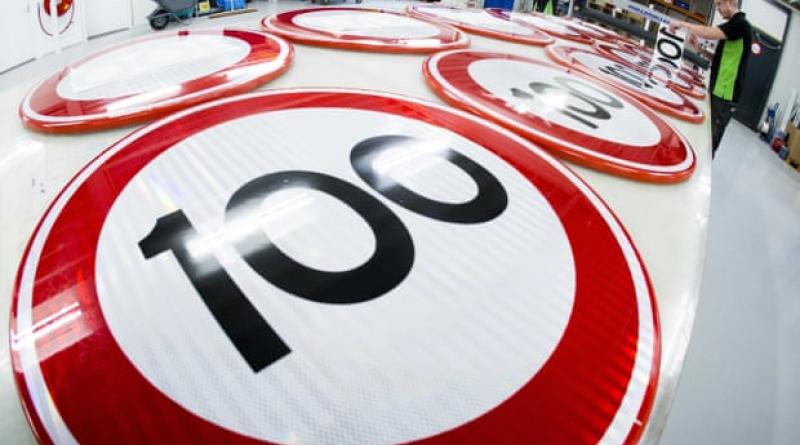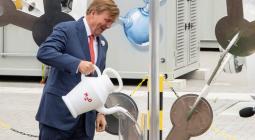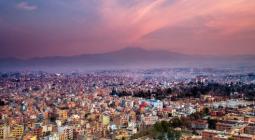Dutch government cuts speed limit to 100km/h to reduce air pollution.

Netherlands takes ‘rotten measure’ of reducing 130km/h limit to protect nature reserves.
The Dutch prime minister, Mark Rutte, has taken what he has described as the “rotten measure” of cutting the maximum speed limit on roads in the Netherlands to 100km/h (62mph) after being ordered by the courts to cut pollution.
The reduction from the current limit of 130km/h followed a Dutch court ruling earlier this year that found government policies breached EU rules in regard to the protection of nature reserves from ammonia and nitrous oxide.
The new limit will be introduced in 2020 and will be the joint lowest in the EU along with Cyprus. Cars will be allowed to drive at the current speed limit between 7pm and 6am, a period covering only about 8-10% of total traffic in the country.
Major infrastructure projects had been put on hold as the government sought to meet the court order. Rutte told a press conference that without the cut to the speed limit he would have had to block housebuilding projects that would have led to job losses.
“I am incredibly upset, it is terrible, but otherwise people would have been without a job at Christmas. Then I could not have looked at myself in the mirror any more,” he said. “No one likes this. But there’s really something bigger at stake. We have to stop the Netherlands from coming to a halt and jobs being lost unnecessarily.”
Rutte’s centre-right VVD party has long been seen as a champion of the car and brought in the 130km/h limit in 2013. The prime minister told reporters he hoped the advent of the electric car would lead to an eventual increase in the speed limit, although he conceded it could not be guaranteed.
The government said a major housebuilding project could now resume. “That is why this breakthrough is so important,” said the minister for housing, Stientje van Veldhoven. “We can achieve that target of 76,000 homes if we start working hard now.”
Alongside the speed cut, an emergency law will be introduced to allow improvements to dykes to continue.
Extra money is also being found to help farmers reduce emissions from pig herds and the composition of animal feed will change. Last month the Dutch army had to be called on to the streets when thousands of farmers, many driving tractors, brought the Hague to a standstill over proposed changes to their practices.
13 November 2019
The Guardian




